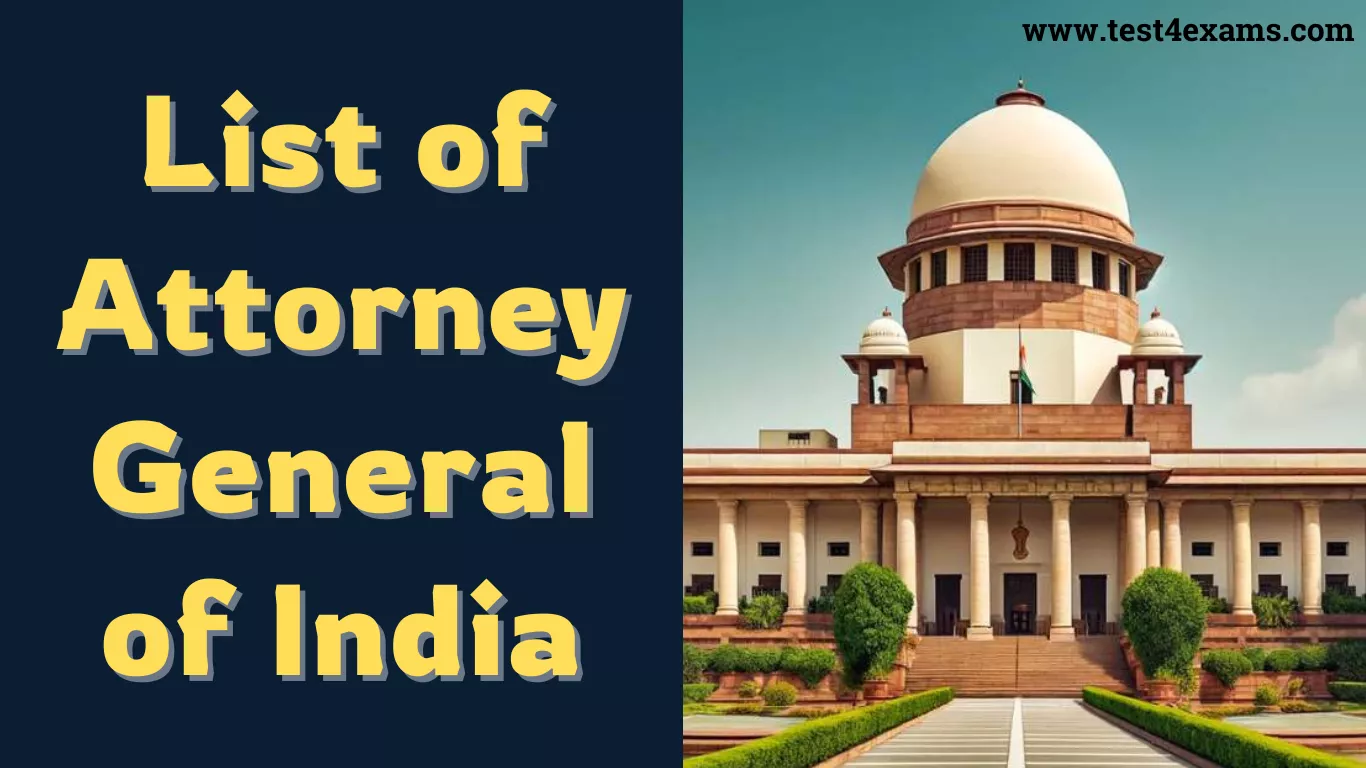The Attorney General of India is the government’s chief legislative and legal advisor. The Attorney General’s primary role is to advise the government on various legal matters and represent the government in court proceedings, including the Supreme Court of India.

The President of India appoints the Attorney General of India. The President shall appoint as Attorney General a person who meets the qualifications for appointment as a judge of the Supreme Court. The appointment is made at the discretion of the president and is not subject to any eligibility criteria. Find more static GK questions with answers.
List of Attorney General of India
| Name of the Attorney General | Tenure |
| M.C. Setalvad | 28 January 1950 – 1 March 1963 |
| C.K. Daftari | 2 March 1963 – 30 October 1968 |
| Niren de | 1 November 1968 – 31 March 1977 |
| S.V. Gupte | 1 April 1977 – 8 August 1979 |
| L.N. Sinha | 9 August 1979 – 8 August 1983 |
| K. Parasaran | 9 August 1983 – 8 December 1989 |
| Soli Sorabjee | 9 December 1989 – 2 December 1990 |
| J. Ramaswamy | 3 December 1990 – 23 November 1992 |
| Milon K. Banerji | 21 November 1992 – 8 July 1996 |
| Ashok Desai | 9 July 1996 – 6 April 1998 |
| Soli Sorabjee | 7 April 1998 – 4 June 2004 |
| Milon K. Banerjee | 5 June 2004 – 7 June 2009 |
| Goolam Essaji Vahanvati | 8 June 2009 – 11 June 2014 |
| Mukul Rohatgi | 12 June 2014 – 30 June 2017 |
| K.K. Venugopal | 30 June 2017 – 30 September 2022 |
| R. Venkataramani | 30 September 2022 – till date |
FAQs
M. C. Setalvad
Cornelia Sorabji
Soli Sorabjee
The President of India
There is no fixed term of the attorney general of India. He holds his office during the pleasure of the President.


